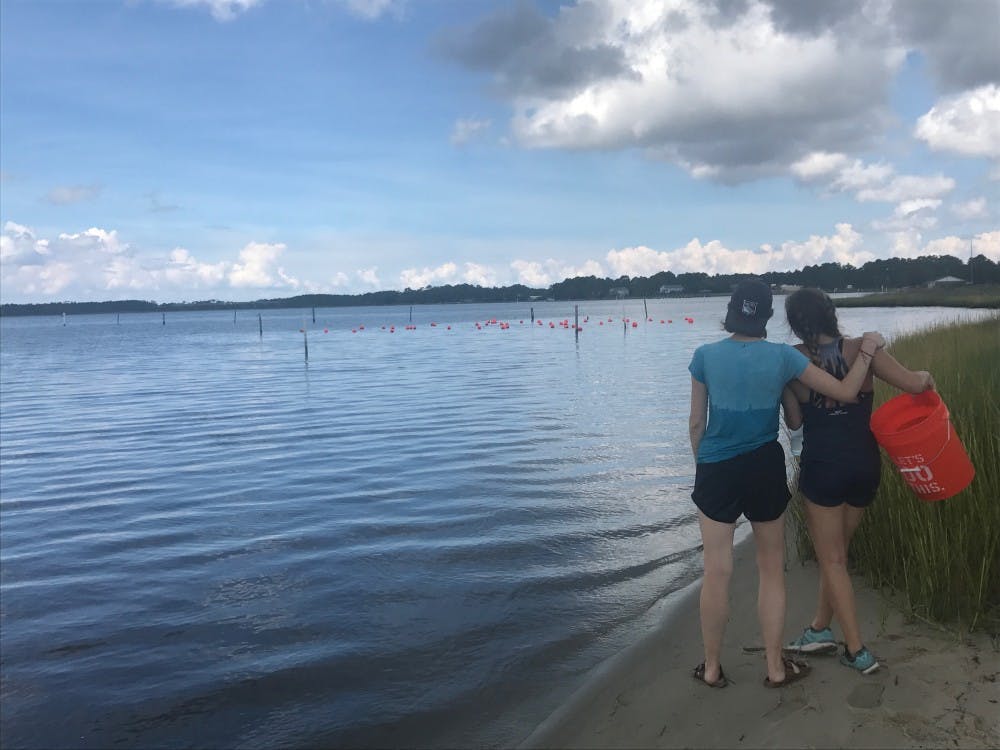On Sept. 15, three UNC students pitched their startup, Phyta, to a panel of world leaders at the United Nations conference after winning regionals for the Hult Prize startup accelerator program.
The business — founded by senior Eliza Harrison, senior Lucy Best and junior Emily Kian— seeks to make sustainable alternatives for nonrenewable products through the use of macro-algae and seaweed.
“Phyta is a seaweed cultivation startup that focuses on providing a message for marine preservation conservation, but also providing new resources for everything from alternative plastic substitutes to personal hygiene products to animal feed,” Best said.
Harrison said their inspiration for the creation of Phyta stemmed from attending a “Bioneers” conference in California where she learned the importance of seaweed and its potential as a sustainable substance.
“Seaweed is five times more effective than any land-based plant at carbon sequestration,” Harrison said.
Carbon sequestration is the process of capturing carbon dioxide gas in the atmosphere, which can mitigate or defer global warming.
“Because of our shared interest in climate change, food security and larger public health, we came together and began researching whether or not it would be possible to grow seaweed off the coast of a place like North Carolina,” she said.
The startup’s founders established a rig off the coast of North Carolina where they could cultivate their seaweed, which they consider to be a “miracle plant.” Theirs is the first seaweed farm in the state.
The group's start began after being recognized in 2017 by National Geographic as finalists for the Chasing Genius competition. This, along with faculty support, aided in their continued enthusiasm and investment in Phyta.



